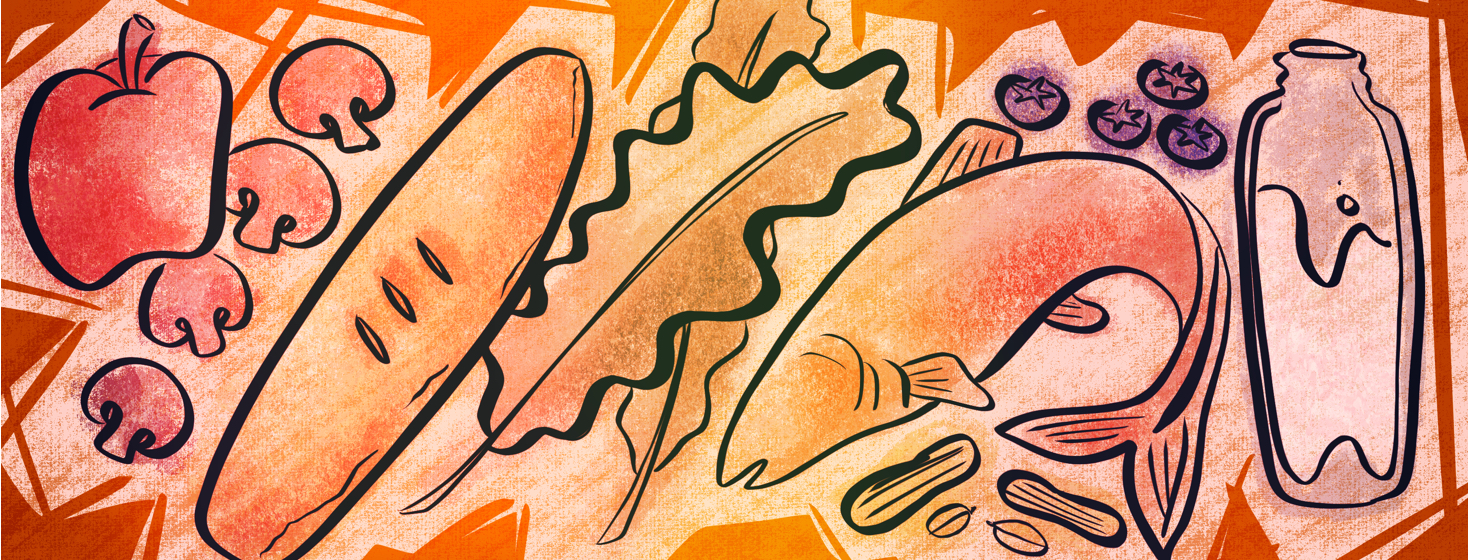What to Avoid if You Have Lupus
When living with lupus, flares are a cause for worry. You may find yourself wondering: what can I do to help avoid flares and live as normally as possible? Fortunately, there are things you can do. There are certain actions you can take to help control your lupus. Flares will happen, but by taking a few key steps, you may be able to influence how often those flares happen and their severity.
Diet and nutrition
One of the most important ways of managing lupus is through the foods you eat. Having a well-balanced diet can help manage lupus in a number of ways. It can help reduce inflammation and lessen the incomplete nutrients in the body. The foods you eat can help keep the bones and muscles strong, manage side effects from medications, help maintain a healthy weight, and reduce the risk of heart disease. Your diet should have lots of fruits, vegetables, and fiber. It should contain fewer foods that have fat, cholesterol, and sodium (salt).1-3 There are both good and less helpful foods in each category! Here are a few suggestions:
Fruits and vegetables
Fruits and vegetables are high in antioxidants, which may help the inflammation associated with lupus. They are also a good source of fiber and Vitamin A and C.1-3
Eat:
- Fresh or frozen fruits and vegetables
- Broccoli, kale, and mushrooms - they are rich in calcium to support bone health
Avoid:
- Canned fruits and vegetables - these can contain high amounts of sugar and salt. Look for low-sodium or canned in water, not heavy syrup options
- Alfalfa Sprouts - these can increase inflammation by activating the immune system
- Garlic - increases the immune system which is not good for lupus as the immune system is already overactive. Using a little bit for flavor or seasoning is okay, but cooking with large quantities should be avoided. If it is listed as an ingredient in a prepackaged meal or on a restaurant menu, it probably has too much.
- Dried fruit
- Fruit juice
Grains
Grains are low in fat and a good source of fiber and energy.1-3
Eat:
Brown and wild rice
Whole wheat bread and pasta
Rye, oats, quinoa, corn, barley
Avoid:
White bread and pasta
Dairy
One major concern for those with lupus is developing osteoporosis, which is a weakening of the bones. Foods high in calcium and vitamin D, most commonly found in dairy products, help to keep bones strong.1-3
Eat:
- Skim or 1 percent milk
- Low fat, low sodium yogurt
- Low-fat cheese
- Fortified lactose-free milk, soy milk, and almond milk
Avoid:
- 2 percent and whole milk
- High-fat yogurt and cheese
- Caffeine, alcohol, cigarettes, salt - these deplete the body’s calcium
Meat, Fish, Poultry
Red meat should be eaten minimally, at most once a week. When purchasing meats, look for 99 percent lean cuts. Remove any fat or skin when preparing meats and choose to broil or grill over frying with oil. Eating fish is important and should be included 3-4 times a week. One-quarter of your plate or less should be devoted to this food group.1-3
Eat:
- Chicken or turkey breast
- Lean pork
- Fish: wild salmon, mackerel, tilapia, cod, rainbow trout, tuna (canned in light water), crab, oysters, sardines, anchovies, herring
Avoid:
- Red meat
- High-fat content meats
Fats and oils
Including some fats and oils in the diet are important, but these items should be limited and saturated fats should be avoided as much as possible.1-3
Eat:
- Nuts and seeds (Brazil nuts, flaxseed, chia seeds, walnuts)
- Avocado
- Oils (vegetable, canola, olive, soybean, avocado, peanut - for cooking)
Avoid:
- High-fat dairy (ice cream, half and half, cream)
- Fried foods
- Baked goods
- Creamed vegetables, soups, sauces
- Red and processed meats
Lupus and supplements
While supplements can be helpful for filling in gaps for the nutrients your body needs, every effort should be made to get these through your diet first as nutrients absorb best in food form. If certain supplements are indicated, discuss what and how much with your doctor before beginning and carefully monitor your response. One supplement that should always be avoided for those with lupus is echinacea. Echinacea serves to boost the immune system and can lead to flares for those with lupus.1-3
Limit sunlight
Being in direct sunlight can be problematic for those with lupus as sunlight can lead to rashes and flares. When going outdoors, even if it is not particularly sunny, you should always wear sunscreen (70 SPF) and a hat. Sunscreen should also contain Helioplex, which helps to block both longwave ultraviolet-A (UVA) light and short wave ultraviolet-B (UVB) light. UVA light reaches the outer layer of your skin (the epidermis) and UVB light reaches the middle layer of your skin (the dermis). Clothing does not provide much protection against UVA and UVB, so it is recommended those with lupus apply sunscreen to those parts of the body covered by clothing.1-4


Join the conversation